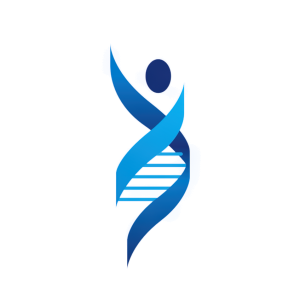Salarius Pharmaceuticals’ Seclidemstat Demonstrates Supporting Role in Inhibiting Validated Oncology Target LSD1 in Two Recently Published Studies
Rhea-AI Summary
Salarius Pharmaceuticals (NASDAQ:SLRX) announced supporting evidence for its first-in-class LSD1 inhibitor seclidemstat (SP-2577) from two recently published animal studies. The drug is currently being evaluated in a Phase 1/2 clinical study at MD Anderson Cancer Center for treating myelodysplastic syndrome (MDS) and chronic myelomonocytic leukemia (CMML).
The studies, published in peer-reviewed journals, demonstrate seclidemstat's role in inhibiting LSD1, a validated target in cancer treatment. The company expects to provide updates on the clinical trial later in 2025. Additionally, Salarius continues to progress with its planned merger with Decoy Therapeutics, announced in January 2025, which will result in the formation of a new company named Decoy Therapeutics.
Positive
- None.
Negative
- Company evaluating strategic alternatives for seclidemstat, suggesting potential uncertainty about the drug's future
- Clinical trial results still pending with no efficacy data presented
News Market Reaction
On the day this news was published, SLRX declined 4.29%, reflecting a moderate negative market reaction.
Data tracked by StockTitan Argus on the day of publication.
Phase 1/2 clinical study evaluating seclidemstat in patients with MDS and CMML is progressing with updates expected later this year
Company continues to advance its contemplated merger with Decoy Therapeutics
HOUSTON, July 09, 2025 (GLOBE NEWSWIRE) -- Salarius Pharmaceuticals, Inc. (Nasdaq: SLRX) (Salarius or the Company) announces that two animal studies recently published in peer-reviewed journals provide additional insight into the role of inhibiting lysine-demethylase 1 (LSD1 or KDM1A), a well-validated target in hematologic and solid tumors. Salarius’ seclidemstat (SP-2577) is a first-in-class, orally bioavailable LSD1 inhibitor that is being evaluated in an investigator-initiated Phase 1/2 clinical study at MD Anderson Cancer Center (MDACC) as a potential treatment for myelodysplastic syndrome (MDS) and chronic myelomonocytic leukemia (CMML) in patients with limited treatment options.
Salarius also announces continued progress in its planned merger with Decoy Therapeutics Inc. (Decoy). Under the definitive agreement announced on January 13, 2025, Decoy will merge with a wholly owned subsidiary of Salarius, subject to the closing conditions set forth in the agreement. The newly formed company will be named Decoy Therapeutics.
The two recently published studies featuring LSD1A inhibition are as follows:
- “Histone lysine demethylase 1A inhibitors, seclidemstat and tranylcypromine, induce astrocytogenesis in rat neural stem cells” by lead author Sohyeon Kim of Chung-Ang University’s College of Pharmacy in Seoul, Korea was published in Biochemical and Biophysical Research Communications. According to abstract: These findings suggest that KDM1A is a target for regulating NSCs (neural stem cells) fate and provide insights into the molecular mechanisms underlying neurodevelopmental processes and epigenetics.
- “Lysine-specific demethylase 1 controls key OSCC preneoplasia inducer STAT3 through CDK7 phosphorylation during oncogenic progression and immunosuppression” by lead author Amit Kumar Chakrabouty of Boston University’s Henry M. Goldman School of Dental Medicine was published in International Journal of Oral Science. According to abstract: This study provides a deeper understanding of OSCC (oral squamous cell carcinoma) progression and highlights LSD1 as a potential therapeutic target for controlling OSCC progression from preneoplastic lesions.
“These animal studies show the importance of inhibiting LSD1 expression and provide further support for the potential role of SP-2577 in slowing or stopping cancer cell growth,” said David Arthur, President, CEO and Director of Salarius Pharmaceuticals. “I’m pleased to report that the MDACC investigator-initiated hematologic cancer study is active and enrolling patients, and we continue to look forward to study updates later this year. This study will be supported while we evaluate strategic alternatives for seclidemstat going forward.
“We are also continuing progress with Decoy on the proposed business combination transaction,” he added. “We believe the promise of Decoy’s IMP3ACT™ platform to develop novel peptide conjugate therapeutics for the treatment of respiratory viruses and cancer offers both near- and long-term value for our shareholders.”
About the Planned Merger
The proposed transaction, if consummated, is expected to facilitate multiple value-creating inflection points with Decoy’s pipeline of peptide conjugate therapeutics engineered by its IMP3ACT platform, which allows for the rapid computational design and manufacturing of innovative peptide conjugate therapeutics. Decoy’s product pipeline targets unmet needs in respiratory infectious diseases and gastroenterology (GI) oncology indications. In addition to advancing the development of Decoy’s IMP3ACT platform, the combined company intends to incorporate Salarius’ oral small molecule protein degrader SP-3164 into a highly targeted peptide-based proteolysis targeting chimeras (PROTACS) drug candidate.
The combined company will be led by Decoy’s Co-founders, Chief Executive Officer Frederick “Rick” Pierce and Chief Scientific Officer Barbara Hibner, by Decoy’s Chief Business Officer Peter Marschel, Chief Technology Officer Mike Lipp and acting Chief Medical Officer and Scientific Advisory Board Chair Shahin Gharakhanian, M.D., and by Salarius’ Chief Financial Officer Mark Rosenblum.
During the next 12 months, Decoy expects to advance its lead asset, a pan-coronavirus antiviral, to the filing of an Investigational New Drug (IND) application with the U.S. Food and Drug Administration (FDA), and to make progress with its other programs including a broad-acting antiviral against flu, COVID-19 and respiratory syncytial virus (RSV), and a peptide drug conjugate targeting GI cancers.
Also during this time, data may be reported from the ongoing MDACC clinical trial in MDS and CMML patients who previously failed or relapsed after hypomethylating agent therapy.
About Decoy Therapeutics, Inc.
Decoy Therapeutics is a preclinical-stage biotechnology company that is leveraging machine learning and artificial intelligence tools alongside high-speed synthesis techniques to rapidly design, engineer and manufacture peptide conjugate drug candidates that target serious unmet medical needs. The company’s initial pipeline is focused on respiratory viruses and GI cancers. Decoy has attracted financing from institutional investors as well as significant non-dilutive capital from the Massachusetts Life Sciences Seed Fund, the Google AI startup program and the NVIDIA Inception program among other sources. The company has also received QuickFire Challenge award funding provided by the Biomedical Advanced Research and Development Authority (BARDA) through BLUE KNIGHT™, a collaboration between Johnson & Johnson Innovation – JLABS and BARDA within the Administration for Strategic Preparedness and Response. For more information, please visit www.DecoyTx.com.
About Salarius Pharmaceuticals
Salarius Pharmaceuticals is a clinical-stage biopharmaceutical company with two drug candidates for patients with cancer in need of new treatment options. Salarius’ product portfolio includes seclidemstat, the company’s lead candidate, which is being studied in an investigator-initiated Phase 1/2 clinical study in hematologic cancers underway at MD Anderson Cancer Center as a potential treatment for MDS and CMML in patients with limited treatment options. SP-3164, the company’s IND-stage second asset, is an oral small molecule protein degrader. Salarius previously received financial support for seclidemstat for the treatment of Ewing sarcoma from the National Pediatric Cancer Foundation and was a recipient of a Product Development Award from the Cancer Prevention and Research Institute of Texas (CPRIT). For more information, please visit www.salariuspharma.com.
About the Proposed Transaction
Definitive agreements were executed with unanimous approvals by the Boards of Directors of Salarius and Decoy. The closing consideration will consist primarily of nonvoting preferred stock of Salarius, and it is expected that following closing and a post-closing stockholder vote to approve the conversion of the preferred shares into common stock, Decoy investors would own approximately
Non-Solicitation
This communication shall not constitute an offer to sell or the solicitation of an offer to sell or the solicitation of an offer to buy any securities, nor shall there be any sale of securities in any jurisdiction in which such offer, solicitation or sale would be unlawful prior to registration or qualification under the securities laws of any such jurisdiction. No public offer of securities in connection with the merger shall be made except by means of a prospectus meeting the requirements of Section 10 of the Securities Act of 1933, as amended.
Forward-Looking Statements
This press release contains “forward-looking statements” within the meaning of the Private Securities Litigation Reform Act of 1995 regarding Salarius, Decoy, the proposed merger and other matters, including without limitation, statements relating to plans and expectations relating to the business, scientific advisory board, products, including expected achievement of milestones for its lead asset and future prospects of Salarius, Decoy and the combined company. These statements may discuss goals, intentions and expectations as to future plans, trends, events, results of operations or financial condition, or otherwise, based on current beliefs of the management of Salarius, as well as assumptions made by, and information currently available to, management. Forward-looking statements generally include statements that are predictive in nature and depend upon or refer to future events or conditions, and include words such as “may,” “will,” “should,” “would,” “expect,” “anticipate,” “plan,” “likely,” “believe,” “estimate,” “project,” “intend,” and other similar expressions. Statements that are not historical facts are forward-looking statements. Forward-looking statements are based on current beliefs and assumptions that are subject to risks and uncertainties and are not guarantees of future performance. Actual results could differ materially from those contained in any forward-looking statement as a result of various factors, including, without limitation: the risk that the conditions to the closing are not satisfied, including uncertainties as to the timing of the consummation of the proposed merger; the ability of each of Salarius and Decoy to consummate the merger; risks related to Salarius’ ability to estimate and manage its operating expenses and its expenses associated with the proposed merger pending the closing; risks that the combined company will not achieve the synergies expected from the proposed merger; risks that Salarius and the combined company will not obtain sufficient financing to execute on their business plans and risks related to Decoy’s products and development plans, including unanticipated issues with any IND application process and the potential of the IMP3ACT™ platform. Readers are urged to carefully review and consider the various disclosures made by Salarius in its reports filed with the SEC, including its Annual Report on Form 10-K for the fiscal year ended December 31, 2024, as revised or supplemented by its Quarterly Reports on Form 10-Q and other documents filed with the SEC. If one or more of these risks or uncertainties materialize, or if the underlying assumptions prove incorrect, Salarius’ actual results may vary materially from those expected or projected.
CONTACT:
Alliance Advisors IR
Jody Cain
jcain@allianceadvisors.com
310-691-7100








